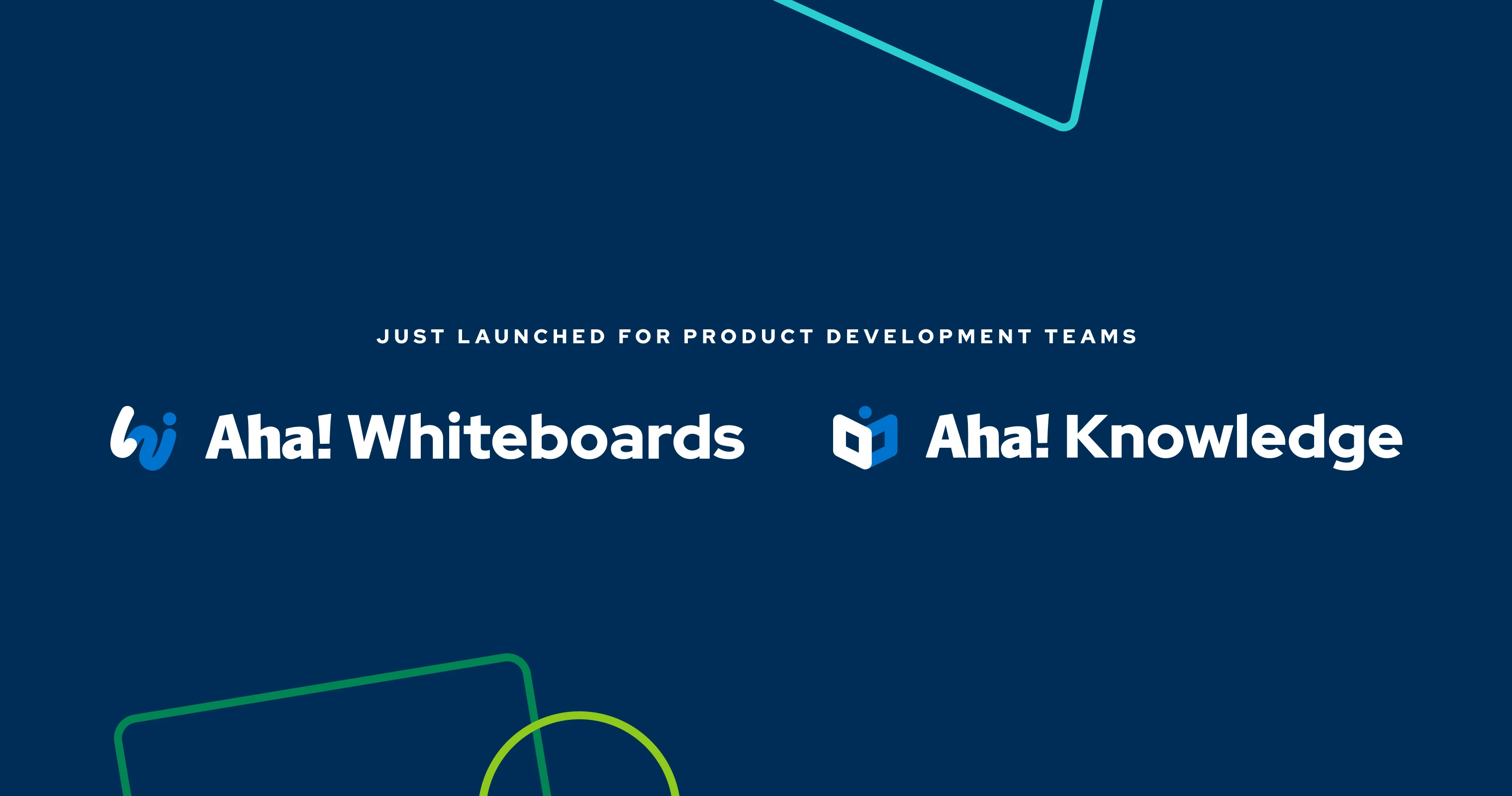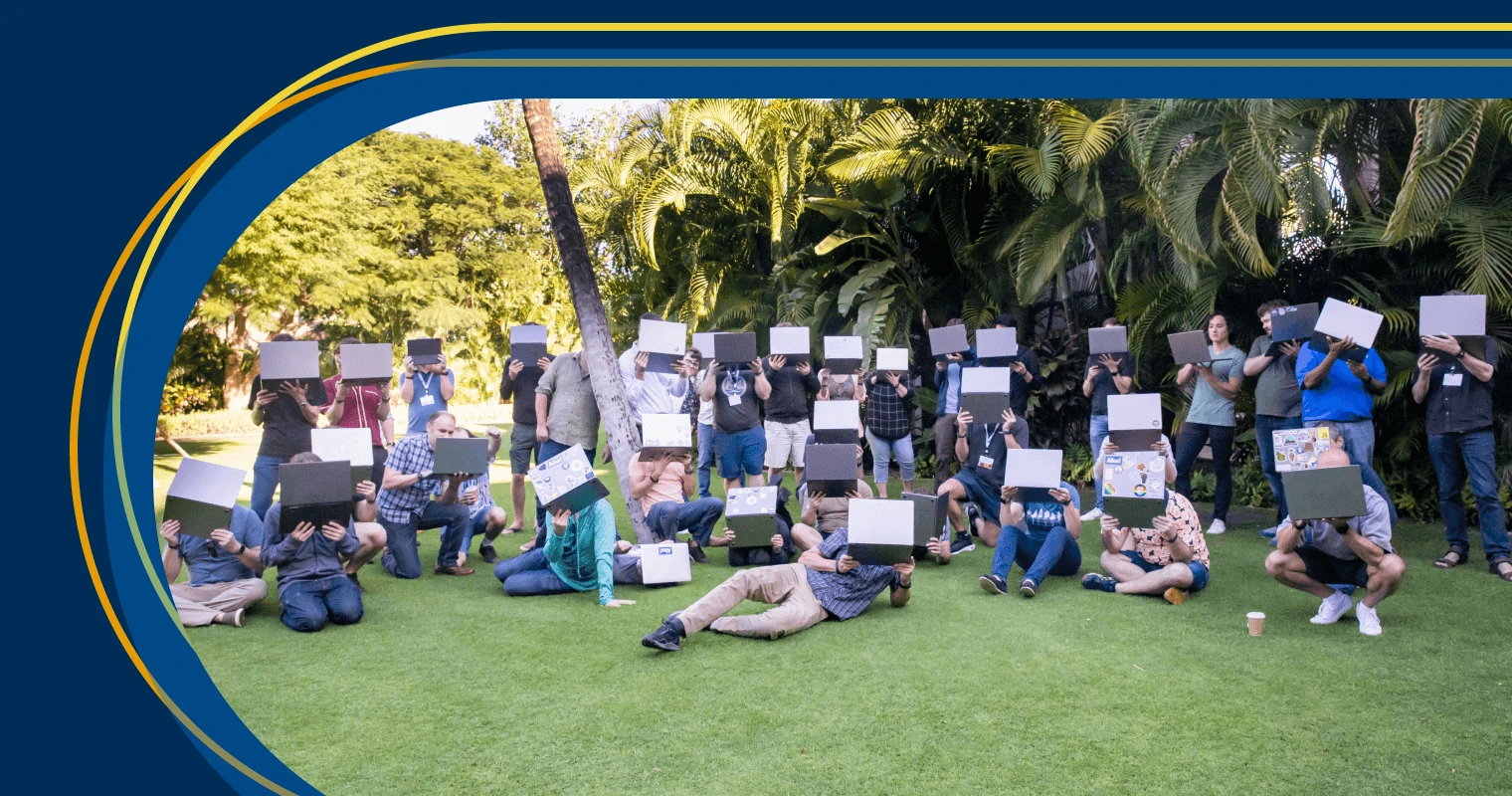
Aha! teammates hiking during an onsite trip to Hawaiʻi | Photo by Jodi B Photography
How can you expect people to know how to work?
Have you ever started a new job and wondered how the heck anyone gets anything done? I know that I have experienced that “uh-oh” feeling before. It is frustrating when you are energized to contribute and cannot see a clear way to do so. No one in the organization has made it a priority to define the path forward, so everyone moves in different directions.
How can you expect people to know how to work? Every organization is different — yet the answer is always the same. You tell them.
If you have been at a great company before, then you know the difference matters. Great companies are radically different from good companies. Good companies copy how others work and can become incrementally better — the highest-performing organizations are unlike anyone else. Productivity hums at great companies. Everyone follows a pre-defined way of working that was refined over time. And there is an understanding that it always can be improved.
This truth — that high-performing companies work differently — became even more apparent to me over the last few months. Our product team met with many product managers who use Aha! so we could better understand their product development lifecycle, or their engines for building software. The discussions revealed that although many folks use similar shorthand to describe their methods (“we follow agile best practices”), it is obvious once you go a layer deeper that no organization works in the same way.
The commonality is that product-led companies invest in helping teams be productive and deliver value. Many have methodologies, tools, and templates in place at each stage of the product development lifecycle. This is not process for process's sake. These are frameworks for efficiency, which people care about.
The idea that teams need a framework for product development success is what has propelled Aha! forward. It is also why we remain energized, pioneering purpose-built software for product development. This includes Aha! Whiteboards and Aha! Knowledge — the latest additions to the Aha! suite.
Teams need to be shown how to work — what makes the organization different. You need defined pathways that you can follow towards success.
It is no secret that the Aha! team has our own frameworks for everything from how we build software to how we support customers and how we hire. Chris and I started documenting these early in the company’s history. We know that we are imperfect. That is why we continue to refine the Aha! way as we grow and get feedback from the team about how to improve.
You can find your own way to greatness. So-called “best practices” cannot be best for everyone, and consultants are not often able to impact deeply embedded institutional challenges. There is no copy/paste option for creating a sustainable product development process. Leaders in organizations usually define team how teams work, for better or worse.
I also must acknowledge that initiating systemic change is daunting and requires deep commitment and support from those around you. However, there is often space for small teams to quietly define a better way of working — which can become a model for the broader organization.
If you are a leader in title or action and want to be part of defining your own way of working, here is where I suggest you start:
Ground in goals
Explain what the team or organization values and why these concepts matter. This is the overarching structure that frames everything you do. Bring focus when you lead with strategy — objectives should guide and ground the work.
Be bossy
It takes boldness to define the way. Take stock of what needs improvement in your current environment. Accept the responsibility of being prescriptive and helping the team embrace a better approach.
Write it down
Create a wiki or knowledge base for how the organization will work. You want heuristics. Capture the essential activities, then identify the points where you can streamline repeatable tasks with templates. Document how-to steps and tips that will reduce friction when folks start a project or task.
Give it life
Make the way a living, breathing part of the organization. Give it a name so that folks can easily refer to it. Your methods should be practiced every day and then fully integrated into the tools you use. Do your best to honor and follow it most of the time, bringing teammates back to center when things go askew.
Create space
Allow others to criticize your way. You need team members to bring their own perspectives and experiences. Be open to other points of view. Once people understand the system, stress-test it, and see ways to improve, embrace those opportunities.
Accept improvements
Change when a better way has been identified, and look for ways to validate it. Every thriving organization is one that strives for continuous improvement in all things. But make sure to update your frameworks, templates, and documentation.
The Aha! way is unique to us, and your company’s way will be unique to you. That uniqueness is your superpower.
Over the years, I have often written that product managers have the best job in the world. I still think that is true. We get to build the future — we solve problems that have not been solved. But it also can be one of the most frustrating jobs in the world if there is no agreed-upon way of working and chaos reigns.
The freedom to achieve comes from structure. The challenge is to create your way and then apply it against different contexts. How does it fare when folks have varying competencies? Can it maintain form with different capabilities? Do you regroup when conditions shift?
I believe you can and you will. Now get to work — so those around you can excel too.
More than 1 million product builders trust Aha! software to build lovable products and be happy doing it.




